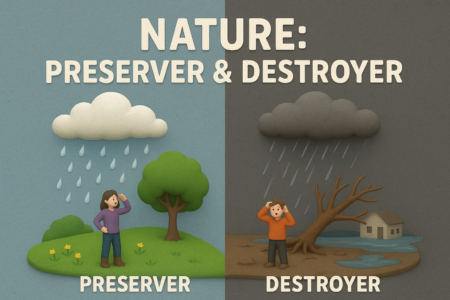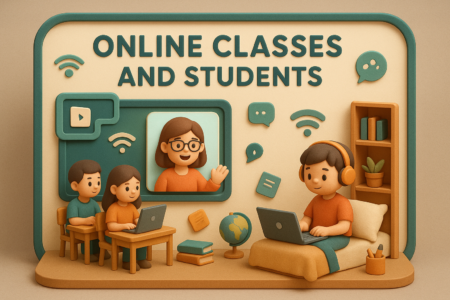Introduction
In today’s interconnected world, networking isn’t just for professionals—it’s crucial for students too! Whether you’re in high school, college, or university, building professional connections can open doors to exciting opportunities and help you pave the way for your future career. But what exactly is networking, and how can you start cultivating professional relationships while still in school? Let’s explore the art of networking and discover how you can build valuable connections right on your campus.
Understanding Networking
Networking refers to the intentional process of establishing and nurturing relationships with individuals who can provide support, guidance, and opportunities for personal and professional growth. It involves connecting with peers, mentors, professors, alumni, and professionals in various industries to exchange information, ideas, and resources.
Benefits of networking for students:
- Access to valuable advice and guidance:
Networking enables students to connect with experienced professionals who can offer insights into their career paths, share industry knowledge, and provide valuable advice for success. - Opportunities for internships and career insights:
Through networking, students can discover internship opportunities, job shadowing programs, and gain firsthand insights into different career paths, helping them make informed decisions about their future. - Expansion of social and professional circle:
Networking allows students to broaden their social and professional network, connecting them with individuals from diverse backgrounds and fields of expertise, leading to new opportunities and collaborations. - Exposure to diverse perspectives:
Engaging with a diverse range of individuals through networking exposes students to different perspectives, ideas, and approaches, enriching their learning experience and fostering creativity and innovation. - Development of essential skills:
Networking provides students with opportunities to practice and refine crucial communication and interpersonal skills, such as active listening, effective communication, and relationship-building, which are essential for success in any field.
Developing Networking Skills
- Initiating Conversations:
Start by introducing yourself with a friendly smile and a firm handshake. Begin with simple questions like asking about someone’s background or interests to break the ice. Show genuine interest in the other person and listen attentively to what they have to say. - Making Connections:
Look for common ground or shared interests to build rapport. Find ways to add value to the conversation by offering insights, sharing experiences, or asking thoughtful questions. Be proactive in exchanging contact information for future follow-ups. - Active Listening:
Practice active listening by focusing on the speaker and maintaining eye contact. Avoid interrupting and show empathy by nodding or providing verbal affirmations. Reflect back on what the other person has said to demonstrate understanding and engagement. - Professional Etiquette:
Dress appropriately for networking events and maintain a professional demeanor. Respect personal boundaries and avoid overly intrusive questions. Follow up with a thank-you email or message after the interaction to express appreciation and reinforce the connection.
Utilizing Resources
School Networking Events:
Attend not only career fairs but also seminars, panel discussions, and industry-specific events hosted by your school. These events often feature guest speakers and alumni who can provide insights into their career paths and offer advice on networking and professional development. Additionally, participating in student clubs and organizations related to your field of interest can facilitate networking opportunities within your school community.
Online Platforms:
In addition to LinkedIn, explore other online networking platforms and forums relevant to your industry or academic interests. Websites like Meetup.com, industry-specific forums, and professional association websites often host virtual events, webinars, and discussion groups where you can engage with like-minded individuals and industry professionals. Actively participate in discussions, share your insights and experiences, and connect with others to expand your network beyond the confines of your school campus.
Utilize Career Services:
Many schools offer career services and resources to help students with networking and professional development. Take advantage of career counseling sessions, resume workshops, and mock interview opportunities offered by your school’s career center. They can provide valuable guidance on effective networking strategies, offer tips for building professional connections, and connect you with alumni mentors or industry contacts who can provide further assistance in your career journey.
Building and Nurturing Relationships
- Be Genuine:
When networking, focus on building genuine connections rather than just exchanging business cards. Take the time to get to know people on a personal level, show interest in their backgrounds, interests, and career goals. Authenticity goes a long way in establishing trust and rapport with others. - Show Appreciation:
After networking events or meetings, don’t forget to follow up with a thank-you email or message to express your gratitude for the opportunity to connect. This small gesture demonstrates your professionalism and leaves a positive impression on your contacts. - Stay Engaged:
Building relationships is not a one-time effort but an ongoing process. Stay engaged with your contacts by periodically checking in, sharing relevant articles or resources, and attending follow-up meetings or events. Keep the lines of communication open and demonstrate your continued interest in maintaining the relationship. - Offer Value:
Networking is a two-way street, so look for ways to provide value to your connections. Offer assistance, share your expertise or insights, and be proactive in helping others achieve their goals. By contributing positively to the relationship, you strengthen the connection and increase the likelihood of mutual support in the future.
Overcoming Challenges
- Combating Shyness:
Take small steps outside your comfort zone, like joining clubs or attending social events. Practice positive self-talk to boost confidence gradually. - Dealing with Rejection:
Remind yourself that rejection is a natural part of networking and doesn’t reflect your worth. Use each setback as an opportunity to learn and improve. - Setting Realistic Goals:
Break down networking into manageable tasks, such as initiating conversations with one new person per event. Celebrate each small achievement to stay motivated. - Seeking Support:
Reach out to mentors, peers, or career counselors for advice and encouragement. Surrounding yourself with a supportive network can help alleviate fears and build resilience. - Embracing Failure:
View failures as valuable learning experiences rather than setbacks. Embrace the growth mindset by focusing on lessons learned and how they can contribute to future success.
Networking in Action: Success Stories
- Making Career Connections:
Meet Sarah, a student who attended a career fair and connected with a professional in her field of interest. By initiating a conversation and expressing her passion for the industry, Sarah gained valuable insights and even secured an internship opportunity. - Navigating Academic Challenges:
Meet John, who struggled with a tough course but reached out to a classmate for help. Through collaboration and peer support, John not only improved his grades but also formed a study group that benefited other classmates. - Securing Mentorship:
Meet Emily, who actively sought out mentors within her school’s alumni network. By reaching out to alumni via LinkedIn and attending networking events, Emily found mentors who provided guidance and support throughout her academic journey. - Exploring Research Opportunities:
Meet David, a student interested in research. Through networking with professors and fellow students, David discovered research opportunities in his department and gained valuable hands-on experience that enhanced his academic portfolio.
Conclusion
Networking is vital for students, offering access to resources, mentorship, and career opportunities. Embrace networking as a skill, proactively seeking connections through events and online platforms like LinkedIn. By doing so, students can pave the way for future success and personal growth.







